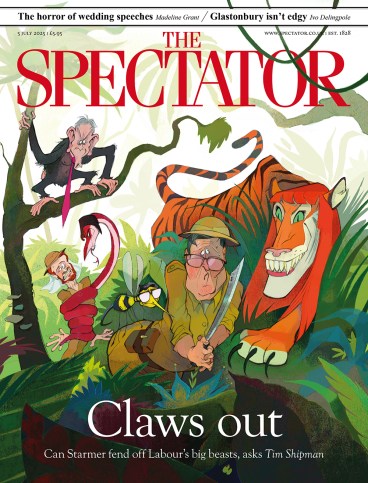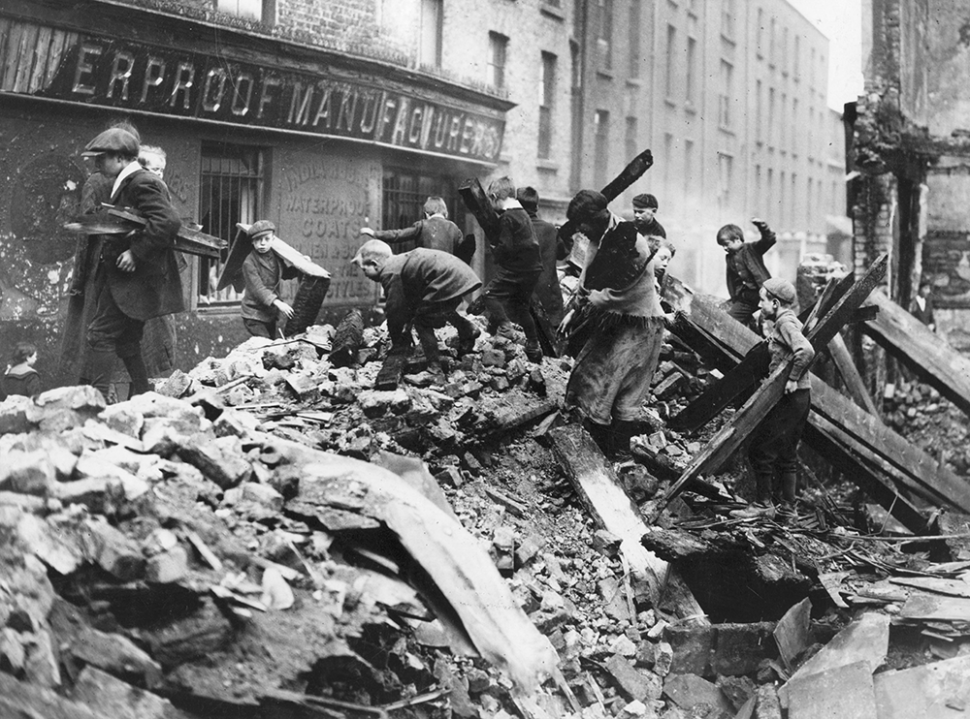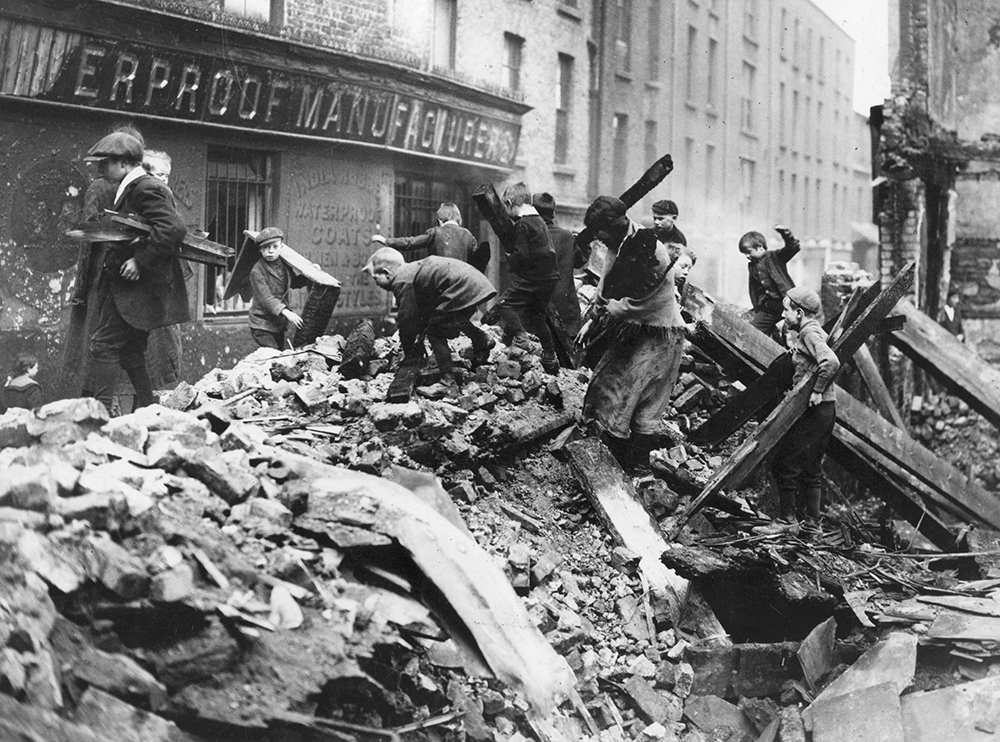
Lloyd Evans has narrated this article for you to listen to.
Leaving home is the best way to find out who you are. In my case, it’s a muddle. Welsh dad. Irish mum. English upbringing. And I feel pleasantly detached wherever I go. In England, I’m considered Welsh. In Ireland, I’m considered English. In Wales, I’m considered inadequate because I don’t speak the language, apart from the odd term like ‘popty ping’ (microwave).
From childhood I’ve been a scholar of English preconceptions about my Celtic brethren. ‘Welsh? Cave-dwellers who love sheep.’ ‘Irish? Bog-trotters who love horses.’ The Irish are preferred, especially by the English upper classes, who are infatuated with Ireland as an abstract concept. But they’re less keen on the real thing. An Irish accent in the family is an ornament. An Irish accent in the sitting room is an embarrassment.
Arriving in Dublin, I step off the ferry and walk into town through the docks rather than waiting for a bus that may not exist. My mother was born in Co. Kerry in 1925 and she belonged to the first generation of free Irish citizens. By a quirk of history, her father and her older siblings were born in the United Kingdom as subjects of the British crown. Same house, different country. Nowadays the family home is a knitwear shop in a street full of knitwear shops.
From my mother, haphazardly, I picked up the story of Irish independence but I never worked out who led the movement. Other nations threw off their oppressors under the inspiration of a single figure. Russia, Lenin. India, Gandhi. China, Mao. Cuba, Castro. South Africa, Mandela. But Ireland has an endless rollcall of heroes whose effigies line O’Connell Street. Dublin’s great landmark, the GPO, is still in business, selling stamps to customers who wait patiently at glass-fronted booths. History shifted here. In this neat, spacious public building, the 20th century turned on its axis. People in Britain don’t fully appreciate the significance of the 1916 Easter Rising, which is regarded in Ireland and around the world as the blow that toppled the Empire. It took five decades for the structure to disintegrate entirely, but the wreckers began their work in the heart of Britain’s first overseas colony.
The rebellion’s leaders were executed at Kilmainham Gaol, a grey hulk that serves as a shrine to Ireland’s indomitability. It takes 30 minutes to stroll there from the centre of town and I’m greeted by a gatekeeper who says my arrival doesn’t suit his timetable. I return the next day, half an hour earlier, and a new gatekeeper rejects me for the same reason. Perhaps the only way to get into Kilmainham Gaol is to blow up the post office.
An Irish accent in the family is an ornament. An Irish accent in the sitting room is an embarrassment
On the Liffey’s north bank, I pass the Irish Emigration Museum and ask myself why London has no comparable memorial to the English diaspora. Then I realise: the UK version is called the Foreign Office. I’m an ultra-cautious pedestrian in Dublin, which is infested with trams. These steel pythons prowl the streets, sending people scattering in all directions. The operator’s dashboard seems to have just two settings, ‘stationary’ and ‘ramming speed’. Is there a horn? Are there brakes? Search me. There’s no steering wheel, obviously, and the operator can’t swerve to avoid a dawdling Jesuit or a pensioner with a guide dog.
I tend to keep my trap shut in Ireland. A British accent chills the warmth of the natives. ‘Too long a sacrifice can make a stone of the heart,’ said Yeats. In comedy clubs, the performers make fun of the old enemy. ‘Any English in?’ asks the compere. A few paws are raised. ‘Nice to see you surrendering.’ A comic at a different venue checks the audience for Brits. None of us identify ourselves. ‘Good,’ he says. ‘Effing Brits. I hate them.’ He tells an unlikely story about a visit to London where he was mistaken for a pickpocket by a grandmother on a mobility scooter. ‘Don’t even think about it,’ she warned. In revenge he stole her wallet and her groceries. This story gets a big laugh. She was English. She deserved it.
Dublin’s demographic is changing. The canal towpaths are lined with steel fences that prevent vagrants and asylum seekers from establishing camps. But the vagrants can wriggle in through a gap at the base of the fence. Once in, they put up tents and enjoy the protection of a barrier designed to keep them out. The Gardaí ought to wriggle in and arrest them, but they can’t. They’re too fat.
Outside the station, I’m approached by a woman looking for a bus to Sandymount. I put on an exaggerated Jacob Rees-Mogg accent: ‘I’m terribly sorry but you’ve asked the one person in the vicinity who knows nothing about local bus routes.’ She laughs. I laugh. And I’m flattered that she thought I was Irish. I ask myself for the millionth time why our islands can’t merge afresh and live as one. A while ago, I published this modest idea on social media and I was hit by a barrage of murderous, hate-filled fury posted by lunatics. Everything they wrote was locked in the past. None of it welcomed the future. Come on, guys. We can do this.









Comments